IB Economics Quotas Import Restrictions
Discover how import quotas affect prices, producers, and your shopping options! Perfect guide for IB Economics students with real examples and exam tips.
IB ECONOMICS HLIB ECONOMICSIB ECONOMICS SLIB ECONOMICS THE GLOBAL ECONOMY / INTERNATIONAL TRADE
Lawrence Robert
5/1/20255 min read
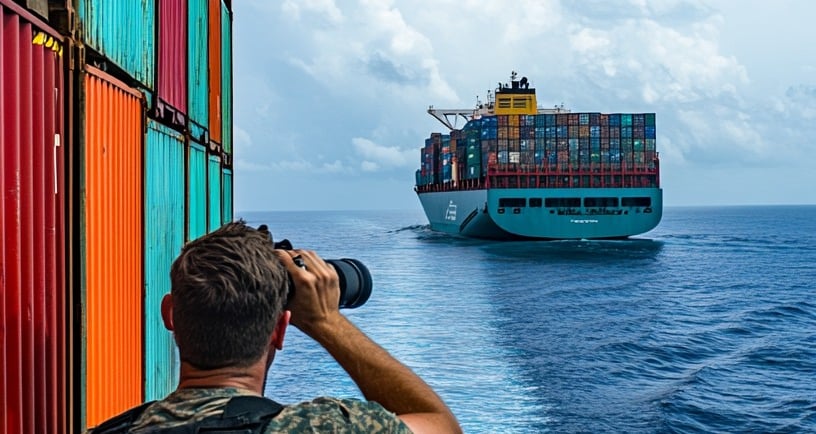

Quotas: When Countries Say "Enough is Enough!" to Imports
If you're wondering what quotas have to do with your life (besides limiting how many TikTok videos you should watch during IB Economics exam season), buckle up! We're about to make this super relevant to your world.
IB Economics What Are Quotas?
Imagine your parents saying, "You can only have THREE chocolate biscuits per day!" That's essentially what governments do with quotas - they put a hard limit on the number or value of goods that can be imported or exported during a specific period.
Unlike tariffs (which we talked about in our last post), quotas don't just make imports more expensive - they straight-up restrict how much product can come in. It's like the bouncer at a club saying, "Sorry mate, we're at capacity!" to foreign products trying to enter the domestic market.
Internal Assessment (IA) Guide – Free Download
Step-by-step support on topic selection, structure, evaluation, and most common IB Economics IA mistakes.
Understanding key IB Economics Internal Assessment concepts
Applying and explaining them in real-world IB Economics contexts
Building IB Economics IA confidence without drowning in dry theory and explanations.
Download the IA guide now for free and boost your IB Economics grades and confidence:
How Do Quotas Work in Real Life?
Let's break it down with an IB Ecomomics real-life example that's making headlines right now: the UK's post-Brexit fishing quotas. Since leaving the EU, the UK has established new limits on how many fish EU vessels can catch in British waters. This isn't just politicians being obnoxious - it's quotas in action!
When a government slaps a quota on imports:
Supply of the product falls (because fewer imports are allowed in)
Price increases (basic supply and demand, innit?)
Domestic producers get to sell more at higher prices (cha-ching!)
Consumers get fewer choices and pay more (not so great for us, eh?)
The Vietnam Rice Quota Example for your IB Economics Course
Vietnam, one of the world's largest rice exporters, decides to impose export quotas on rice during global shortages. In 2023, they temporarily limited rice exports to ensure domestic food security amid climate change concerns.
Before the quota:
Vietnamese consumers could buy rice at the world price (PWORLD)
Domestic suppliers provided some rice (Q1)
Imports made up the difference to meet total demand (Q4)
After the quota:
Supply dropped dramatically
Price shot up from PWORLD to PQUOTA
Demand contracted from Q4 to Q3
Domestic suppliers increased production, but not enough to make up for lost imports
(This is where your diagram would be brilliant - showing the shift from SDOMESTIC to SDOMESTIC+QUOTA!)
IB Economics Who Wins and Who Loses with Quotas?
Consumers (That's You!)
Sorry to be the bearer of bad news, but consumers typically get the short end of the stick with quotas:
You pay higher prices (bye-bye, spending money for Starbucks)
You get fewer choices (no more exotic foreign brands)
Your total spending actually increases despite getting less stuff!
Think about smartphone import quotas - if your country limited iPhone imports, prices would skyrocket even more, and you might be stuck with fewer options. Not ideal for the latest tech, right?
Every episode of Pint-Sized links back to what matters most for your IB Economics course:
Understanding key IB Economics concepts
Applying them in real-world IB Economics contexts
Building IB Economics course confidence without drowning in dry theory.
Subscribe for free to exclusive episodes designed to boost your IB Economics grades and confidence:
Domestic Producers
Local businesses throw parties when quotas are introduced:
They can charge higher prices (without improving their product - cheeky!)
They sell more units
Their profits increase dramatically
They face less foreign competition
IB Economics Real-life example: When Indonesia implemented quotas on imported beef in 2022, local cattle farmers saw their incomes rise by over 15%!
Foreign Producers
These poor people get absolutely hammered:
They can sell less of their product to your country
They might get a higher price per unit, but overall revenue typically plummets
They have to scramble to find new markets for their products
Government
Unlike tariffs, quotas don't directly fill government coffers:
No tax revenue is generated (unless they sell import licenses)
They actually have to spend money enforcing the quota
Political popularity and votes might increase among domestic producers
Society Overall
Economists (the fun police of the financial world) will tell you society as a whole loses with quotas:
Market efficiency decreases
Total welfare drops
Resources aren't allocated optimally
The Norwegian Wine Quota Drama
Let's crunch some real numbers with a juicy example from Norway (one of the world's highest alcohol tax countries - poor Norwegians!).
Norway imposes a 10-million-bottle quota on imported wine. Here's what happens:
Wine price: Jumps from €8 to €10 per bottle (less money for crisps!)
Norwegian consumers buy fewer bottles: Down from 90 million to 80 million
Consumer spending increases: From €720 million to €800 million (paying more for less - ouch!)
Norwegian vineyards: Production jumps from 50 million to 70 million bottles
Domestic producer revenue: Skyrockets from €400 million to €560 million
Foreign producers: Get absolutely crushed, losing €220 million in revenue
Total welfare loss to society: A staggering €30 million!
Quotas in Today's World: More Relevant Than Ever
With recent global supply chain disruptions and growing protectionist tendencies, quotas are making a comeback:
The EU imposing steel import quotas to protect European manufacturers
Japan maintaining strict rice import quotas to protect traditional farmers
The UK establishing new fishing quotas in the North Sea
Saudi Arabia setting quotas on foreign workers to boost domestic employment
Why This Matters for Your IB Economics Course
IB Economics Examiners LOVE asking about:
Calculating welfare effects of quotas (especially at HL)
Comparing tariffs vs. quotas (which are more effective / harmful?)
Evaluating winners and losers from protectionist policies
Discussing real-world applications in different markets
IB Economics Course Pro tip: When discussing quotas in your exams, always remember to:
Draw a clear diagram (like the Vietnam rice example)
Calculate numerical effects (like the Norwegian wine example)
Analyse impacts on different stakeholders
Evaluate overall welfare effects
Provide recent, real-world examples
For access to all IB Economics exam practice questions, model answers, IB Economics complete diagrams together with full explanations, and detailed assessment criteria, explore the Complete IB Economics Course:
The Bottom Line for your IB Economics Course
Quotas might seem like a good idea to protect domestic industries, but they usually create more problems than they solve. They're like putting a plaster on a broken leg - they might look reassuring, but they're not fixing the underlying issues!
Next time you're shopping and wondering why certain imported products are hard to find or surprisingly expensive, you might just be experiencing the effects of quotas. And now you can impress your friends by explaining exactly why!
IB Economics Diagrams Programme, What's included:
200+ exam-ready diagrams covering the entire IB Economics syllabus
Video for every diagram showing you exactly how each model looks
Image version perfect for modelling diagrams in you essays, presentations, and your IA
Detailed written explanations of the IB Economics theory behind each diagram
Both SL and HL IB Economics diagrams clearly labelled and organised by topic
Real IB Economics exam application showing how to use diagrams effectively in Paper 1 and Paper 2
Stay well
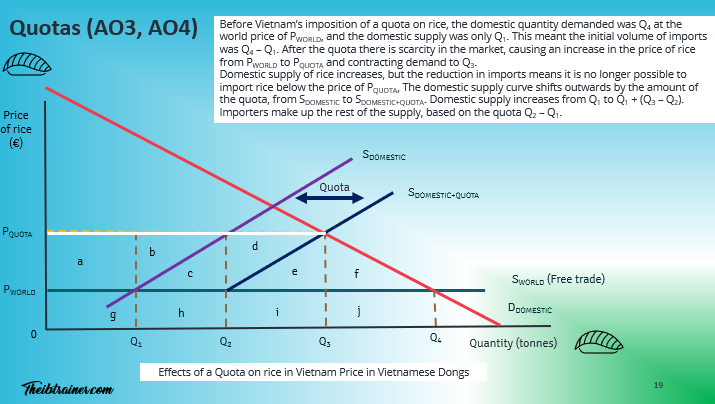

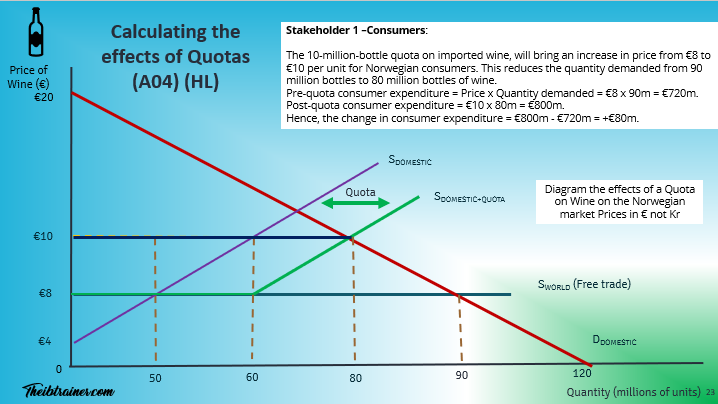

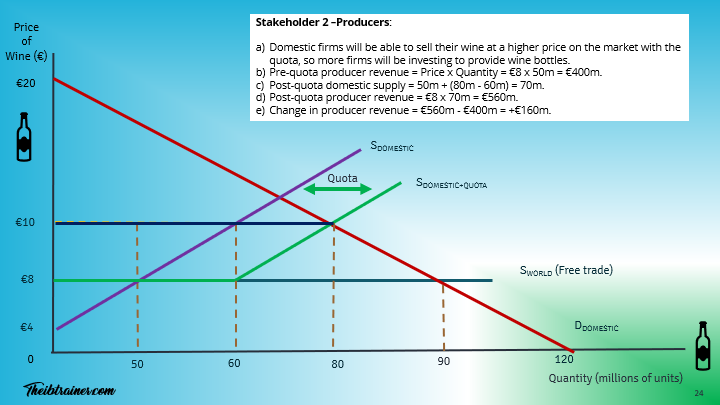

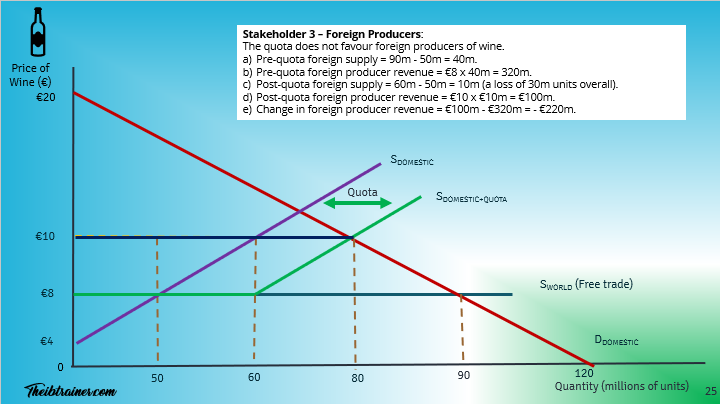

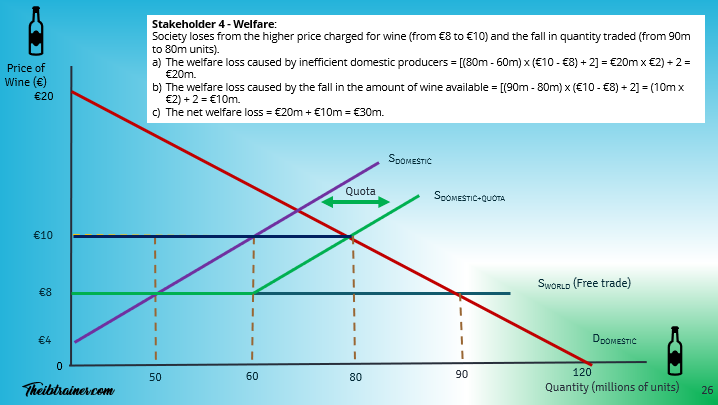

© Theibtrainer.com 2012-2026. All rights reserved.
More Basic Resources For IB Students:
Legal
Have a Tip? Send us a tip using our anonymous form
